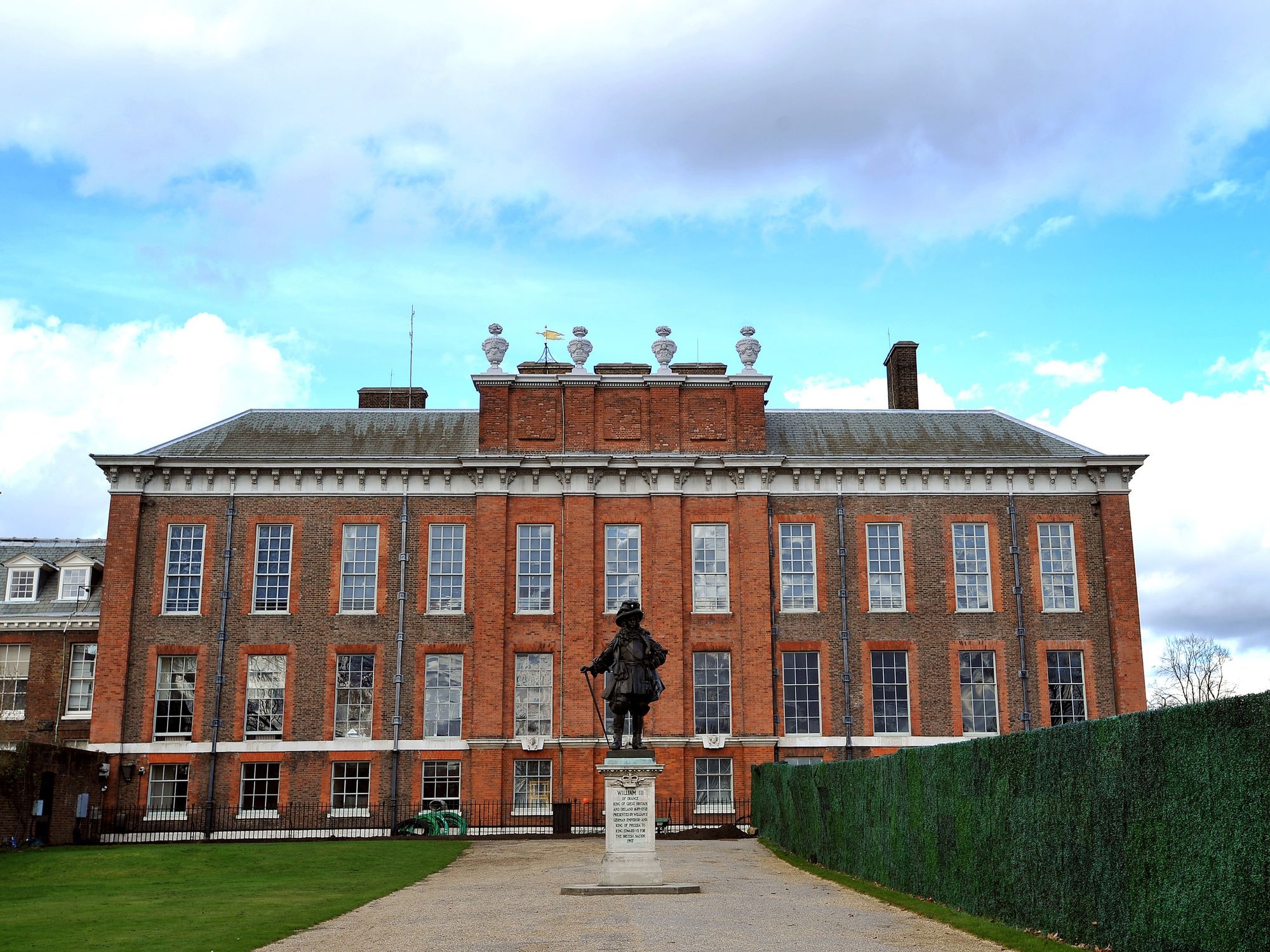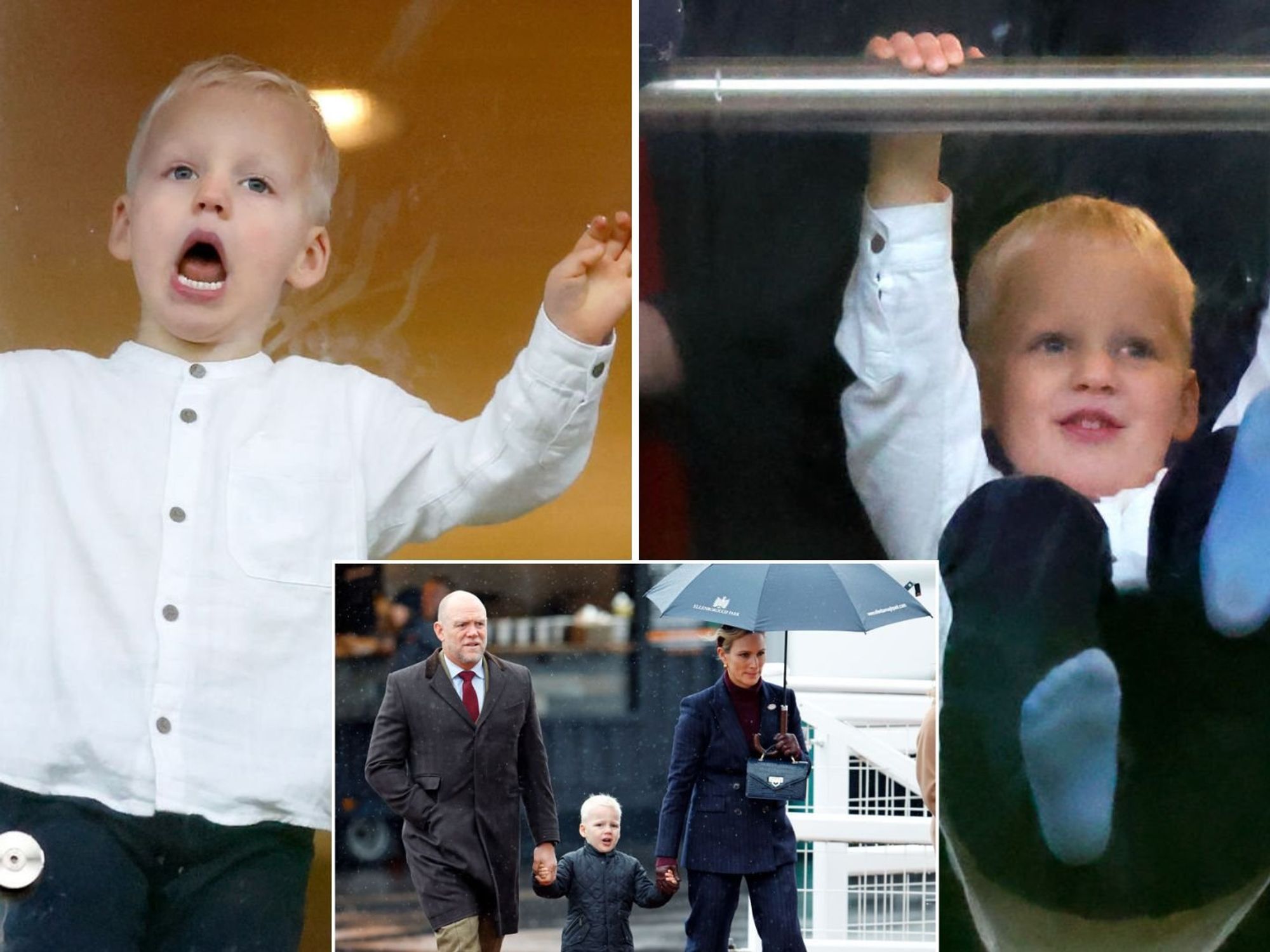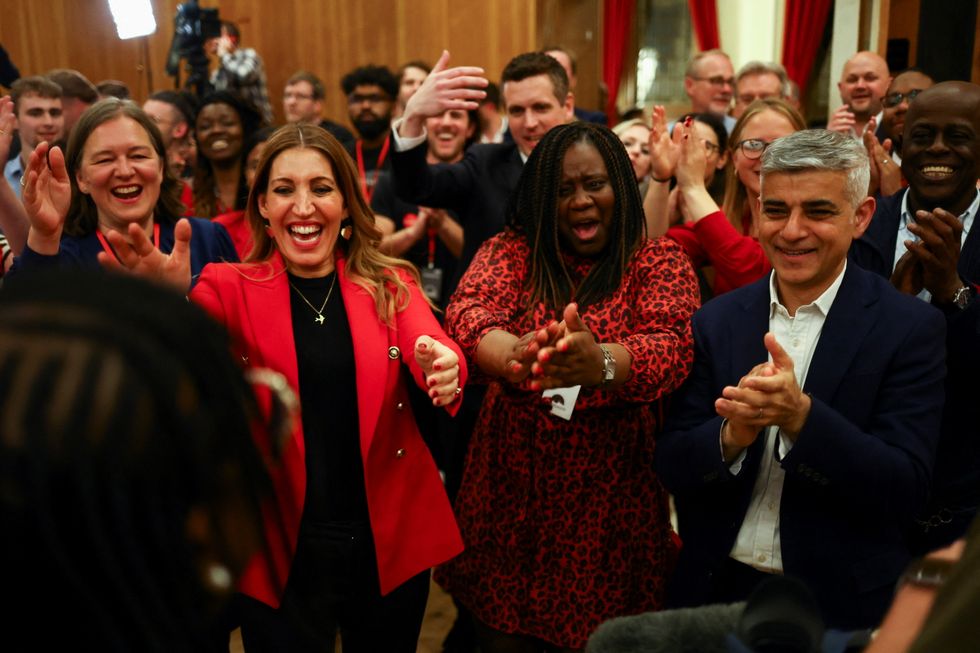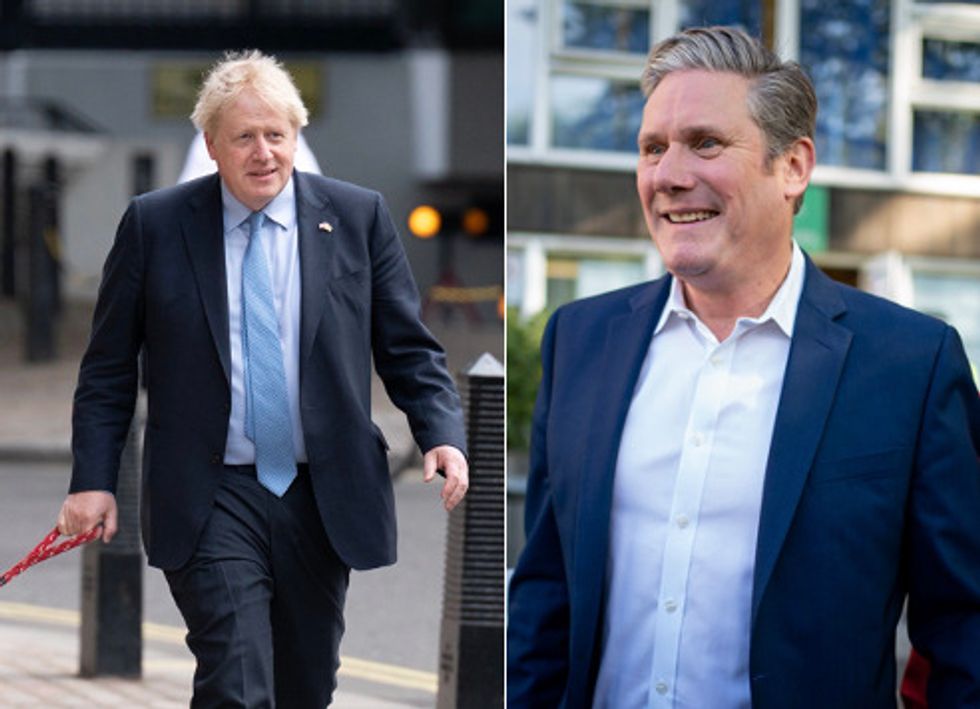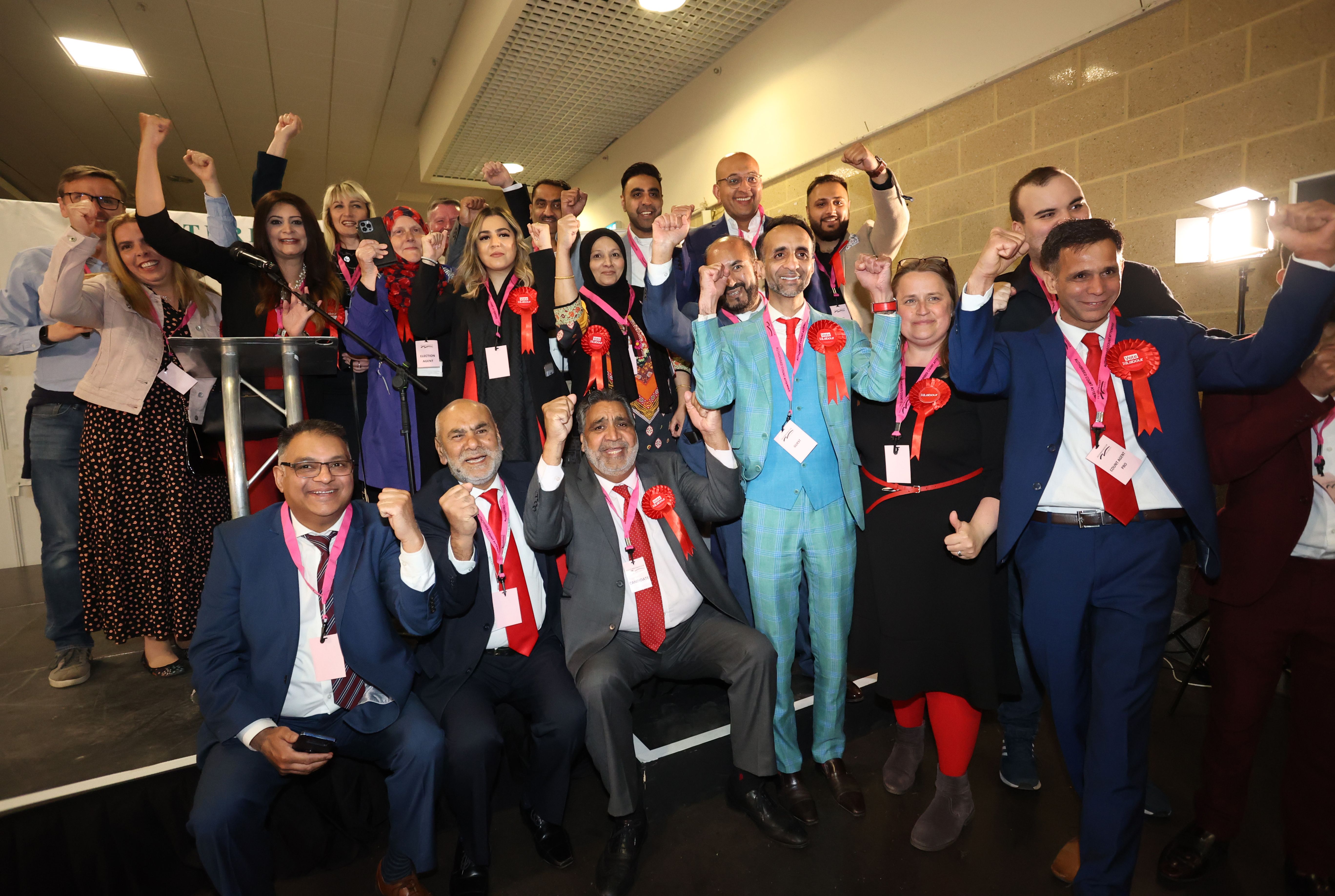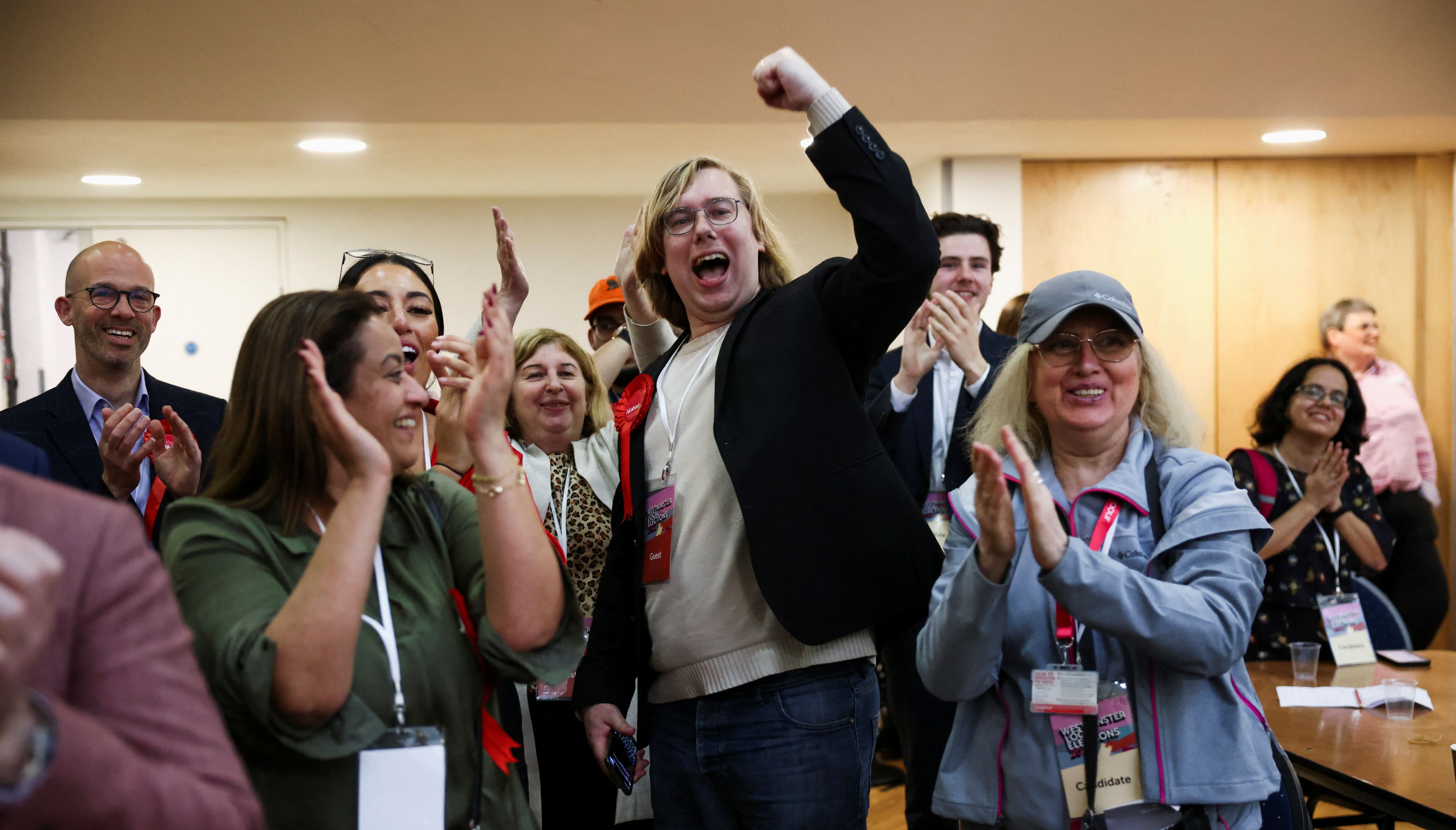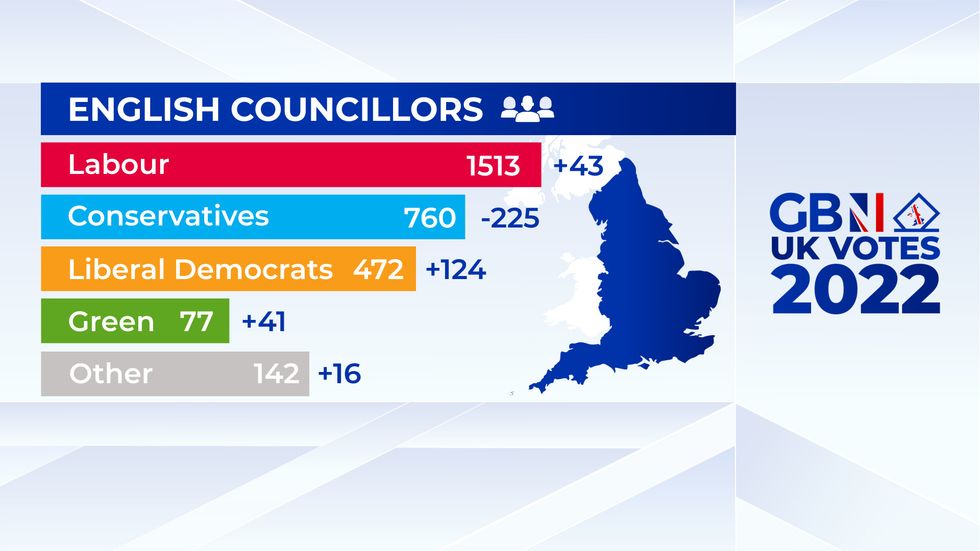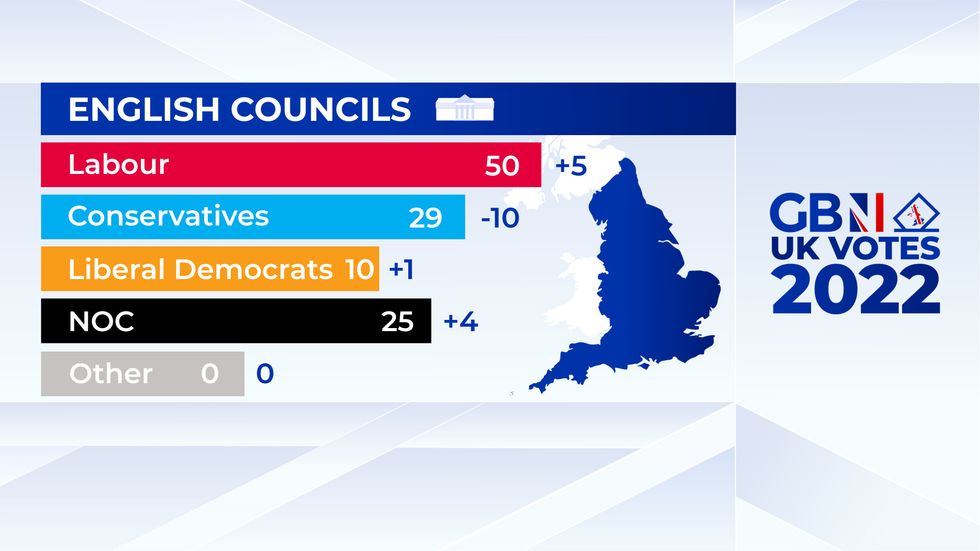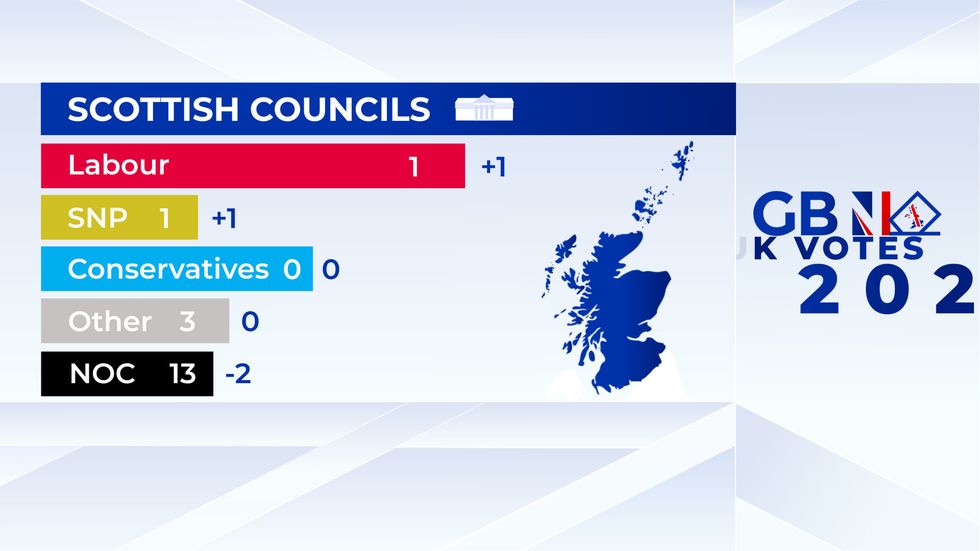Local elections 2022: Tories face grim results in London but Labour struggles in Red Wall areas
The Tories have faced a mauling in London with Labour taking three historic councils, but Sir Keir Starmer's party has struggled to make headway elsewhere
Don't Miss
Most Read
Boris Johnson faced backlash from local Conservative Party leaders as the Tories lost major London authorities to Labour and suffered setbacks across England.
Sir Keir Starmer’s party further strengthened its grip on the capital, taking the totemic Tory authority in Wandsworth, winning Westminster for the first time since its creation in 1964 and clinching victory in Barnet.
Tory ranks appear divided on who or what is to blame, with many councillors turning on the Mr Johnson over Partygate but ministers saying the result is merely down to "mid-term challenges".
Mr Johnson said the Government was “absolutely determined” to help people through the “economic aftershocks” of Covid with “every ounce of compassion and ingenuity”.
Speaking to broadcasters during a visit to a school in his constituency, the Prime Minister admitted that the UK had “failed to invest sufficiency” in domestic energy security for “decades”.
But it is not all good news for Sir Keir, who hailed the results as a "big turning point".
Although Southampton has gone to Labour, the party is making only modest gains outside London and appears to be struggling in traditional Red Wall seats.
Polling expert Sir John Curtice poured cold water on the suggestion that these results signify a momentous night for Sir Keir's new-look party, noting that he still faces a mountain to climb in Leave-voting areas.
Sir John said: "There is so far very little evidence of the Labour Party making particularly significant advances in the so-called Red Wall i.e. pro-Leave parts of the country in the Midlands and the north.”
Shabana Mahmood MP, Labour’s national campaign co-ordinator, said her party made gains because it offered an alternative on the cost of living.
Campaign group Momentum blasted Labour's performance, describing it as ‘underwhelming’ during a "golden opportunity" for the party.
While Liberal Democrat leader Sir Ed Davey celebrated his party’s “big gains” in the local elections which he said were due to voters seeking an alternative to the Conservatives amid cost-of-living concerns.
Sir Ed also warned Conservative MPs that “the Liberal Democrats are coming for you”.
Scotland’s First Minister Nicola Sturgeon has hailed a “seismic” result for the SNP in Glasgow.
Sturgeon’s party had two councillors elected in the Pollokshields ward of Glasgow City Council, while Tory councillor David Meikle – the husband of former MP Natalie McGarry – lost his seat.
Ms Sturgeon said on Twitter: “National/city trends aside, this result is seismic. For years, Pollokshields was the only Tory seat in Glasgow and it seemed we would never take it.”
Key results so far:
– Westminster
Westminster has been a Tory seat since its creation in 1964, so Labour's victory here is a big scalp for Sir Keir. New leader of Westminster City Council Adam Hug described his party's victory as a "huge privilege".
London Mayor Sadiq Khan and Labour MP Dr Rosena Allin-Khan celebrate in Wandsworth
HANNAH MCKAY
– Barnet
Barnet is another key win for Sir Keir, this time more for internal party politics. Given the area's large Jewish community, it can be framed as Labour regaining the trust of the Jewish community after Jeremy Corbyn's controversial spell as leader.
– Wandsworth
Wandsworth is a long-standing Labour target in London and this year the party has finally won power from the Conservatives, who had been in control of the council since 1978 and had prized themselves on charging residents one of the lowest average levels of council tax in the country.
– Southampton
This was another top Labour target and the party has succeeded in winning control back from the Conservatives, though it has a slim majority on the new council of just four seats.
– Sunderland
A poor performance by Labour might have seen the party lose overall control at Sunderland, a council it has run since 1973. But Labour kept its majority and lost just one seat, to the Liberal Democrats, who also gained a second seat from the Conservatives.
– Cumberland
Labour has won a comfortable majority in the newly-created authority of Cumberland, which covers the former districts of Allerdale, Carlisle and Copeland in Cumbria – all areas currently represented by Conservative MPs.
– Nuneaton & Bedworth
Labour saw its majority at Nuneaton & Bedworth disappear in 2018 and the party lost more councillors in 2021, with the Conservatives taking overall control. This year Labour has lost another seat to the Tories, in a part of the country that will be a key battleground at the next general election.
– Hull
The Liberal Democrats have gained a wafer-thin majority in Hull, dislodging Labour who had run the council since 2011. The new line-up is 29 Lib Dems, 27 Labour and one independent – but no Conservatives.
– Derby
Labour hoped to close the gap on the Conservatives in Derby, where the council has been in no overall control since 2018. But while the party has made three gains, it is still behind the Tories who now have 18 seats, with Labour on 16, the Lib Dems eight, Reform six and independents three.
– Huntingdonshire
The Conservatives have shed seats in all directions in Huntingdonshire, with the Liberal Democrats gaining three, Labour one, the Greens one and independents three. It means the Tories have lost overall control of the council, in a part of the country that used to be represented in the House of Commons by former Conservative prime minister John Major.
– West Dunbartonshire
The voting system used for local elections in Scotland means it is rare for one party to win an overall majority, but Labour has done it in West Dunbartonshire after making four gains, including two from the Conservatives.
– Bolton
Labour had hoped for signs of progress in Bolton, Greater Manchester, a council where they enjoyed a majority until 2019. But while the party has gained two seats this time, the Conservatives also made a gain and remain the largest party with 23 councillors, ahead of Labour’s 19, 13 independents and five Liberal Democrats.
– Rossendale
Two gains were enough for Labour to win a slim majority in Rossendale in Lancashire, after losing control of the council last year. The party now has 19 councillors, compared with 11 Tories, five independents and one Green.
– Worcester
Worcester has see-sawed since 2000 between having a Conservative majority and being in no overall control. The opposition parties were hoping to make gains this year and they have done just enough to leave the Tories without a majority, with one gain for Labour and two for the Greens.
– Tunbridge Wells
The Liberal Democrats are now the largest party in Tunbridge Wells, after the Conservatives again lost seats in various directions. There were four gains by the Lib Dems, three by Independents and two by Labour.
Boris Johnson and Sir Keir Starmer
PA
Labour candidates and supporters celebrate at the results count at Peterborough Arena
Paul Marriott
Labour Party candidates and supporters celebrate after the Labour gain of Westminster City Council
HENRY NICHOLLS
In other developments:
– The Tories lost Worcester to no overall control.
– The Conservatives lost West Oxfordshire, which contains David Cameron’s former Witney constituency, to no overall control.
– Voters in Bristol decided to abolish the post of mayor in a referendum.
– In Rutland, where there was not even an election, council leader Oliver Hemsley quit the Conservative group.
– Disgraced former Labour councillor Luftur Rahman was elected Mayor of Tower Hamlets
– Votes will start to be counted later in more counties in England, Scotland and Wales.
– In Northern Ireland, counting will begin to decide the make-up of the Stormont Assembly, with Sinn Fein vying with the DUP to become the largest party.
– Alex Salmond's new party Alba failed to gain any council seats despite fielding 111 candidates
– Plymouth and Glasgow elected their first ever trans councillors.









